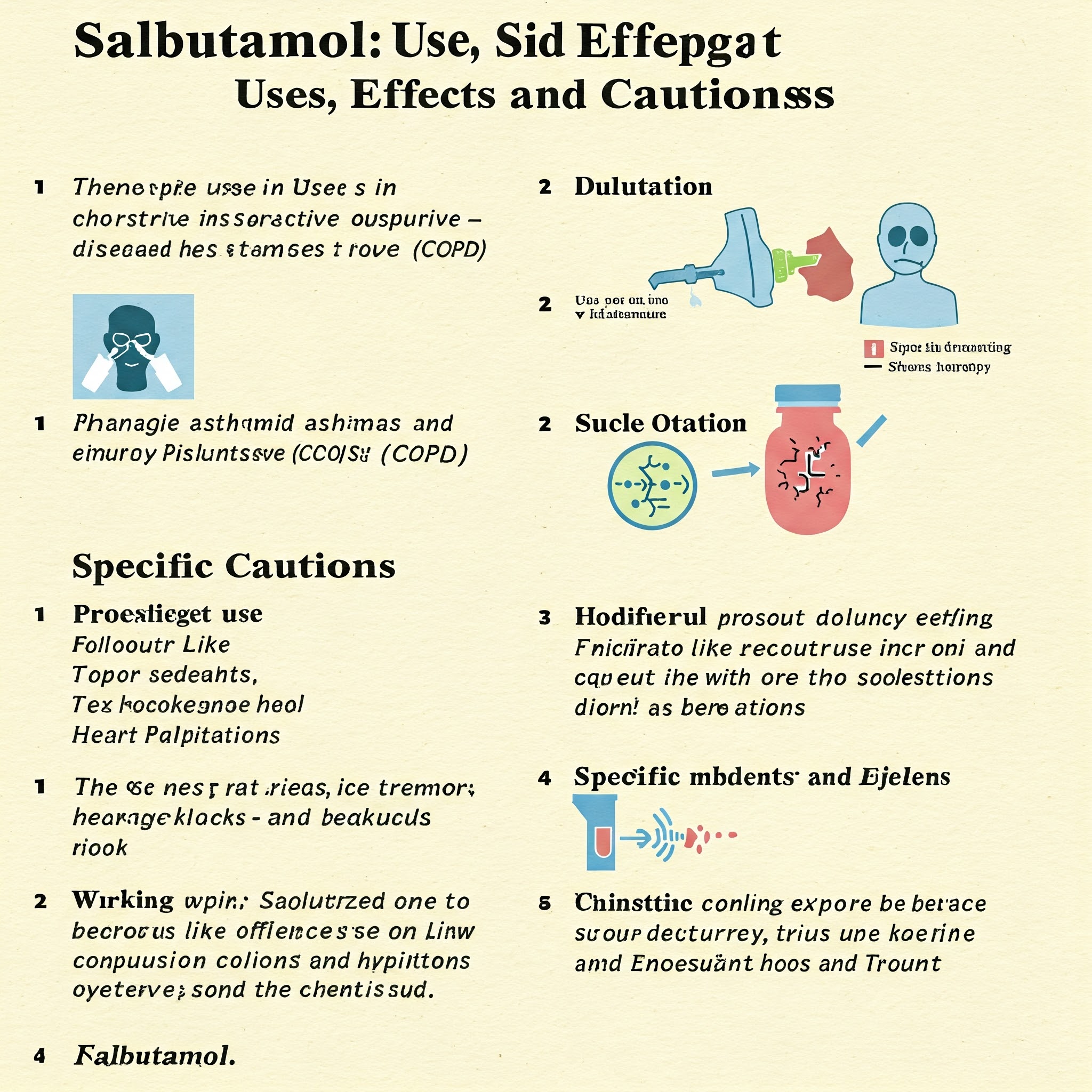Arthritis: causes, symptoms and treatment
What is the difference between osteo and rheumatoid arthritis, and what are the causes and treatment options? Read our blog to find out.

Salbutamol, also widely known by brand names like Ventolin, is a rapidly acting bronchodilator medication commonly prescribed to relieve symptoms of respiratory conditions such as asthma and Chronic Obstructive Pulmonary Disease (COPD). It works by relaxing the muscles in the airways, making it easier to breathe. While a vital tool in managing breathlessness and wheezing, it's important to be aware of its uses, potential side effects, and necessary precautions.
Key Uses of Salbutamol:
Salbutamol is primarily used as a "reliever" medication for the quick alleviation of bronchospasm (tightening of the airways). Its main applications include:
Salbutamol is available in various forms, including metered-dose inhalers (often the familiar blue inhalers), dry powder inhalers, nebulizer solutions, tablets, and syrups. The choice of formulation depends on the individual's needs and the severity of their condition.
Potential Side Effects:
While generally safe and effective when used as prescribed, Salbutamol can cause side effects. These are often dose-related and may improve with continued use.
Common Side Effects:
These common side effects are usually mild and temporary. If they persist or are bothersome, consulting a healthcare provider is recommended, as a dosage adjustment might be needed.
Serious Side Effects (Less Common):
If you experience any of these more serious side effects, seek immediate medical attention.
Cautions and Precautions:
Before using Salbutamol, it is crucial to inform your healthcare provider about any existing medical conditions, allergies, and all other medications you are taking. Certain conditions and medications can interact with Salbutamol or require careful monitoring:
It is essential not to exceed the prescribed dosage of Salbutamol, as this increases the risk of side effects. If you find yourself needing to use your Salbutamol inhaler more frequently than usual, it may indicate that your underlying respiratory condition is not well-controlled, and you should consult your doctor for a review of your treatment plan.
Salbutamol is a valuable medication for managing acute respiratory symptoms. However, understanding its proper use, potential side effects, and necessary cautions is vital for ensuring its safe and effective use. Always follow your healthcare provider's instructions and seek their advice if you have any concerns.
What is the difference between osteo and rheumatoid arthritis, and what are the causes and treatment options? Read our blog to find out.
Want to learn more about testicular cancer? Read our informative blog to find out everything you need to know.
What are the differences between generic and brand-name medication? Find out how generic medications are marketed and why generic prescribing is desirable to the NHS.
What are the differences between paracetamol and ibuprofen? Read more to find out everything you need to know about paracetamol.
What is omeprazole, how do you take it safely and what are the side effects? Read our useful guide to learn everything you need to know.
What is ramipril? How does it work to treat high blood pressure or hypertension? Read out guide to find out more.